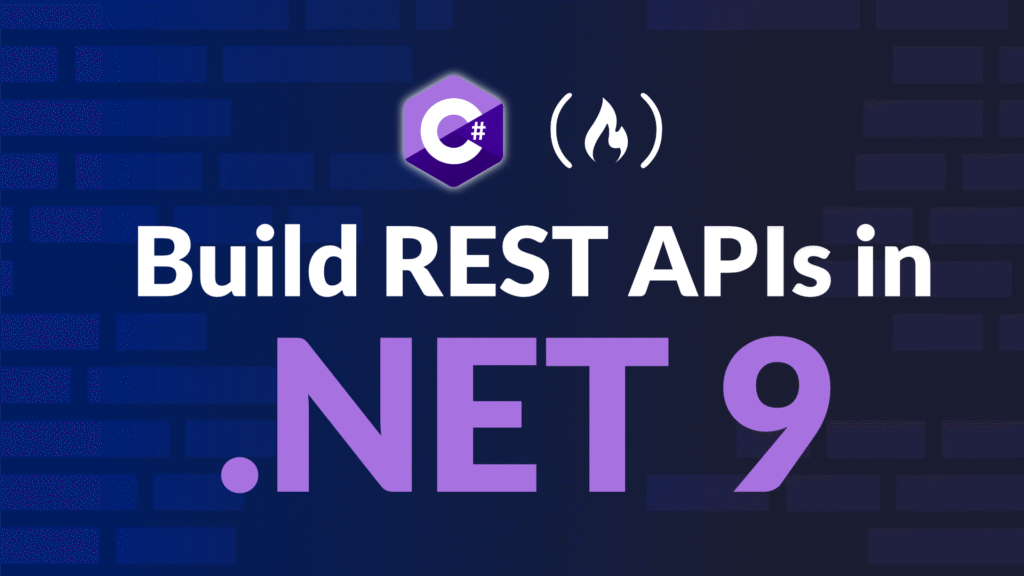Building robust web applications and services requires a solid understanding of REST APIs, the backbone of modern web communication. Whether you’re looking to create mobile app backends, integrate different systems, or build scalable web services, REST API development skills are essential for any aspiring developer. With .NET 9 and ASP.NET Core providing powerful, industry-standard tools for API development, there’s never been a better time to master these fundamental skills.
We’ve just published a comprehensive beginner-friendly course on the freeCodeCamp.org YouTube channel, taught by Alen Omeri, that takes you from absolute beginner to confidently building REST APIs in .NET 9. This step-by-step tutorial is specifically designed for those new to ASP.NET Core, covering everything from basic REST concepts to implementing full CRUD operations with SQL Server database integration.
Foundation and Core Concepts
The course begins with essential theoretical knowledge, explaining what REST APIs are and why they’re crucial in modern software development. You’ll understand the principles behind RESTful architecture and how APIs enable different applications to communicate effectively. This foundation ensures you’re not just copying code, but truly understanding the concepts behind what you’re building.
From there, you’ll dive into getting started with ASP.NET Core, learning the framework’s structure and how it facilitates API development. The tutorial covers REST API models, teaching you how to design and structure your data representations properly. You’ll then progress to creating controllers, the components that handle incoming requests and coordinate responses.
Practical Implementation
The hands-on portion begins with creating lists and working with data, giving you immediate practical experience with API functionality. You’ll explore HTTP methods in detail, understanding how GET, POST, PUT, and DELETE operations work within the REST framework and how to implement each one effectively in your ASP.NET Core application.
Database integration forms a crucial part of the course. You’ll learn to install and configure SQL Server and SQL Server Management Studio (SSMS), essential tools for professional API development. The tutorial guides you through creating a database from scratch and establishing the connection between your API project and the database, skills that are fundamental for real-world applications.
Advanced Database Operations
The course covers data seeding techniques, showing you how to populate your database with initial data for testing and development purposes. This practical skill ensures your APIs have realistic data to work with during development and testing phases.
The culmination of the course focuses on implementing complete CRUD operations. You’ll build Create, Read, Update, and Delete functionality that connects your API endpoints to actual database operations. This section ties together everything you’ve learned, demonstrating how to build a fully functional API that can handle real-world data management tasks.
Why This Course Matters
REST APIs are the foundation of virtually every modern web application, mobile app, and cloud service. Learning to build them properly with .NET 9 and ASP.NET Core gives you access to Microsoft’s robust, enterprise-grade development ecosystem. The skills you’ll gain are directly applicable to professional software development roles and provide a solid foundation for more advanced topics like microservices architecture and cloud deployment.
The course’s beginner-friendly approach ensures that even those with no prior API development experience can follow along and build confidence. By the end, you’ll have created a complete, database-connected REST API and understand the principles needed to build more complex systems.
Ready to begin your journey into professional API development? Watch the full course on the freeCodeCamp.org YouTube channel (1-hour watch).
Source: freeCodeCamp Programming Tutorials: Python, JavaScript, Git & MoreÂ


